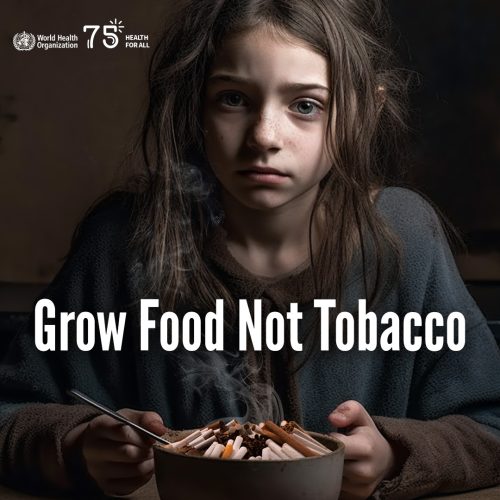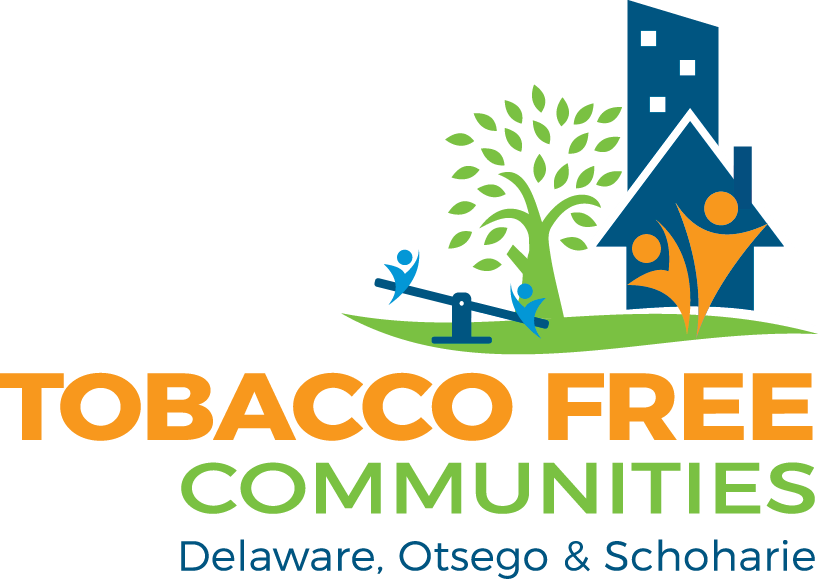Today (May 31) is World No Tobacco Day. This year’s theme is Grow Food, Not Tobacco. The World Health Organization (WHO) is focusing on how tobacco growing harms our health, the health of farmers, and the health of our planet.
 According to WHO, the tobacco industry is contributing to the global food crisis. Some reasons include:
According to WHO, the tobacco industry is contributing to the global food crisis. Some reasons include:
- Scarcity of quality land. Quality land is increasingly being used for tobacco growing in low- and middle-income countries, reducing the amount of land that could be used for crops to nourish people.
- Limited choice of alternatives. Choices of alternative crops are sometimes limited due to absence of strong assured markets as compared to the tobacco market, as well as of government support to transition away from tobacco growing.
- Degrading of soil. The tobacco plant and the chemicals required to grow it degrade the soil, and intercropping – the practice of growing two or more crops in close proximity – is a challenge as the soil is depleted of essential nutrients for productive farming.
- Crop intensity. Tobacco is a labour-intensive crop that takes up to 9 months to mature, which makes it difficult for smallholder farmers to grow food crops within the same year.
Tobacco growing also leads to harming the health of farmers. They are exposed to heavy chemicals and nicotine, and may absorb up to 50 cigarettes per day worth of nicotine when planting, cultivating or harvesting tobacco. Tobacco farmers also inhale tobacco smoke during the curing process, which can increase risk of having chronic lung conditions.
The environmental impacts of tobacco are enormous. Tobacco growing requires heavy use of pesticides, which seep into our soil. Deforestation is another concern, according to WHO, tobacco farming accounts for about 5% of total deforestation. It takes roughly one tree to make 300 cigarettes. To learn more about World No Tobacco Day and the impacts of tobacco farming, click here.




